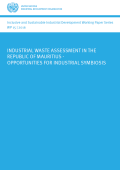
The working paper Industrial Waster Assessment in the Republic of Mauritius: Opportunities for Industrial Symbiosis aims to stimulate industrial symbiosis through the establishment of recycling activities and a circular economy.
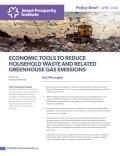
Reducing and diverting waste can be an important step in GHG mitigation and Canada’s overall climate change approach. Economic Tools to Reduce Household Waste and Related Greenhouse Gas Emissions focuses on economic policy tools to encourage waste prevention and diversion at the final consumer stage.
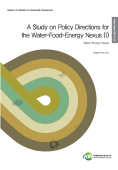
The purpose of this paper A Study on Policy Directions for the Water-Food-Energy Nexus is twofold: (i) to identify the nexus interactions between water and energy system, and various nexus-based solutions that can address sectoral issues in both systems, (ii) to develop possible institutional arrangements, including public intervention, that can support the adoption of nexus approaches when they can enhance sustainability and resource security of each component systems.
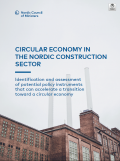
The Nordic Council of Ministers has published a report on potential policy instruments that can accelerate a transition toward a circular economy in the Nordic construction sector. Most of the policy instruments identified focus on rules and regulation, particularly on the content and quality of building materials and demolition plans.
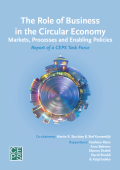
This report The Role of Business in the Circular Economy: Markets, Processes and Enabling Policies analyses the key obstacles that need to be addressed in circular economy, explores numerous policy areas at the EU and national level where support can act as a catalyst for market transformation, and puts forward actionable policy recommendations.
